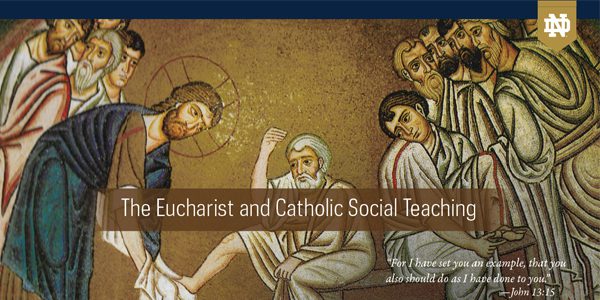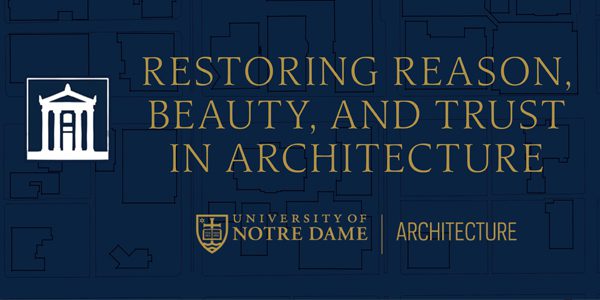Consider This! Simplifying the COVID-19 conversation – Masks, Distancing, and Public Health
Subscribe to the ThinkND podcast on Apple, Spotify, or Google.
Featured Speakers:
- Heidi Beidinger-Burnett, Director, Eck Institute for Global Health Masters Program; Associate Professor of the Practice, Department of Biological Sciences, University of Notre Dame; President of the St. Joseph County Board of Health
- Mary Ann McDowell, PhD, Associate Professor of Biological Sciences and Member of the Eck Institute for Global Health, University of Notre Dame
- Dr. Mark Fox, Deputy Health Officer, St. Joseph County Department of Health
- Professor David Leighton, Professor in the Department of Chemical and Biomolecular Engineering, University of Notre Dame
In this episode, Dr. Mark Fox, Professor David Leighton and Professor Mark McCready joined hosts Heidi Beidinger-Burnett and Mary Ann McDowell in discussing the public health aspect of Covid-19, as well as the importance and effectiveness in wearing masks and social distancing. It is imperative to understand how these measures fight the virus in order for people to be safe and healthy.
The session began with an introduction of the guests. Professor David Leighton is a Professor in the Department of Chemical and Biomolecular Engineering at Notre Dame. Professor Mark McCready also works as a Professor in the Department of Chemical and Biomolecular Engineering at Notre Dame. His current research interests include multiphase fluid mechanics applied to processes that capture and sequester carbon dioxide and use of multi-scale computational models to describe biological and physiological systems. Dr. Mark Fox is a physician, ethicist, and public health professional. He also is currently the St. Joseph County Department of Health Deputy Health Officer.
After the guest speakers were introduced, Dr. Fox was asked to talk about contact tracing. Dr. Fox stated that for University of Notre Dame students, there should be both university contact tracers and state contact tracers. University contact tracers are concerned with exposure within the university, and state contact tracers are concerned with exposure throughout the county. Dr. Fox said a “close contact” is strictly defined as being closer than six feet for longer than fifteen minutes, without masks.
Visit the event page for more.
Then, the group discussed the topic of masks. The discussion began with a false quote from President Trump, in which he stated that “85% of the people who wear masks become infected with Covid-19.” Dr. Fox stated that Trump misunderstood this study. It was not so much about mask wearing, but sites of exposure, such as restaurants.
The “Rumor Has It” portion allowed each guest to decide whether an ongoing rumor is true or false. Leighton said that gator masks are, actually, not nearly as effective in preventing transmission of Covid-19 as other masks. He impressively demonstrated this using laser optics. He also exhibited this by wearing a gator and spraying it with water, saying the word “pop” in front of a mirror, then showing the droplets that ended up on the mirror. This is one of the reasons why gators are less effective, especially if they get wet. Then, McCready stated that carbon dioxide will not, in fact, build up in the masks that protect against Covid, as some people have begun to rumor. The final rumor was that “masks violate constitutional rights.” While this rumor is more of an opinion, Dr. Fox stated that he believes that the requirements to wear masks are reasonable.
This led to a point that Beidinger made about the struggle of public health in America: everyone wants to act according to their own individual wants and views. However, it is extremely vital to make public health a priority, and in order to do so, everyone must work together and according to the new cultural norms.
Leighton then described whether face shields work. Face shields are more comfortable and easier to communicate with than masks, however they are not as effective; there is no way to filter particles with face shields.
Finally, the event was opened up to questions from viewers. A viewer asked about particles and how they can travel. The experts said that being with many people in an open, outdoor setting is much less risky than being with five people in a small apartment for a long time. This was followed by a question about bringing children back to elementary school. Dr. Fox stated that this is difficult, as these children spend the entire day in essentially the same room, so the buildup of particles is more severe. Ending the discussion, Dr. Fox acknowledged the competing guidelines that schools have experienced from parents and health officials throughout the year and how challenging that must be.
- 11:25—The session began with an introduction of the guests. Professor David Leighton is a Professor in the Department of Chemical and Biomolecular Engineering at Notre Dame. Professor Mark McCready also works as a Professor in the Department of Chemical and Biomolecular Engineering at Notre Dame. Dr. Mark Fox is a physician, ethicist, and public health professional.
- 32:02—If gator masks get wet, they are significantly less effective than other masks.
- 35:22—While some groups of people believe that masks violate constitutional rights, Dr. Fox thinks that mask mandates are reasonable to protect public health.
- 35:50—It is extremely vital to make public health a priority, and in order to do so, everyone must work together and according to the new cultural norms.
- 47:20—The experts said that—with regards to the spread of Covid—being with many people in an open, outdoor setting is much less risky than being with five people in a small apartment for a long time.
- “We often think of contact tracing as both forward facing and backward facing.” (Dr. Mark Fox 13:14)
- “Different groups do peer reviews, and then finally you have lots of publications and lots of researchers come together and that is the way science works, and I think that’s a positive thing.” (Mary Ann McDowell 31:55)
- “This is the struggle of American public health; we are trying to advocate on the behalf of the American public, then people want to make decisions for themselves individually.” (Heidi Beidinger, 35:30)
- “Had we started the pandemic with leadership from the top that had demonstrated and modeled the behavior that we needed then I think this conversation would have gone in a different direction.” (Heidi Beidinger, 36:30)
- “Face shields are very important in a medical environment, but they are not a replacement for masks; they are a supplement.” (David Leighton, 44:20)
Related Content
Eucharistic Abundance and Social Regeneration
In 2022, the United States Conference of Catholic Bishops (USCCB) announced that the Church in this country would undertake a Eucharistic Revival, as a way to bolster Catholics’...
View EventHow Cities Speak To Us
Professor Emily Talen joins the School of Architecture to share her work at The Urbanism Lab and its focal point at the University of Chicago for the study of the built...
View EventThe Black National Anthem & Parent’s Signing Off On Children Reading Black Books
In this week’s episode, Isaiah and Tykiera talk about some tweets about Black people that took Twitter by storm. They also talk about The Black National Anthem, Lift Every Voice...
watch video


